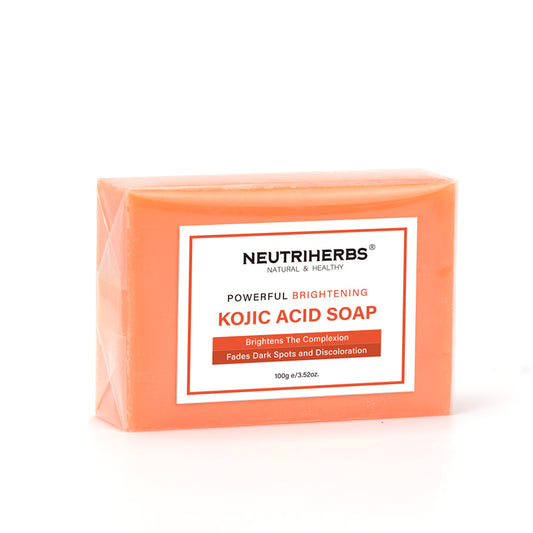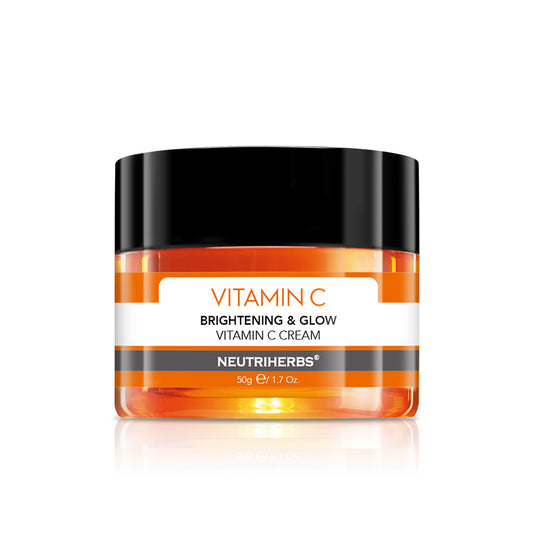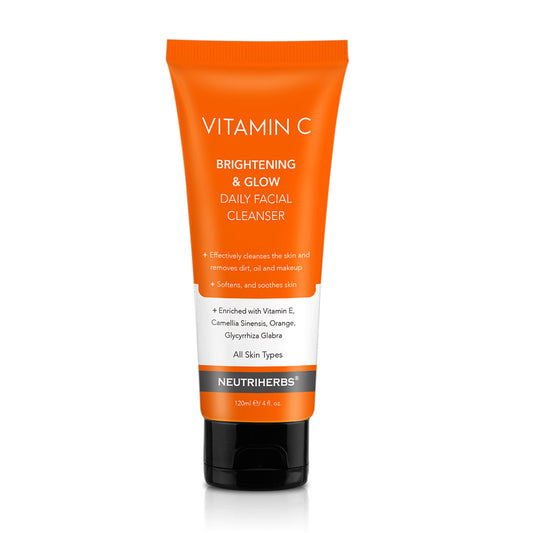If you haven't heard about Vitamin E and the benefits associated with incorporating this vital antioxidant into your skincare regime (as well as your diet), keep on reading as we look into what exactly it is that this powerful antioxidant does for your overall health, especially your skin.
WHAT IS VITAMIN E?
Vitamin E is an antioxidant found mostly in high-fat foods. It is one of the four fat-soluble vitamins which are essential in maintaining good health and youthful looking skin, alongside Vitamins A, D and K.
Fat-soluble vitamins are absorbed and transported by your body in a manner similar to that of fats. This means that your body stores and uses them as needed.
If foods such as avocados, tomatoes, kiwi fruit and mango are regulars on your grocery list, then you'll be happy to know that you are already incorporating Vitamin E into your diet. Other foods rich in Vitamin E include broccoli, spinach and various nuts and seeds like sunflower seeds, hazelnuts and almonds.

Having a good balance of Vitamin E incorporated into your diet most certainly assists your skin health, but to really penetrate the skin deeply and achieve beautiful, youthful looking skin it's highly recommended to apply Vitamin E topically as well. This can be in the form of Vitamin E oils, creams and/or serums.
WHY IS IT IMPORTANT TO APPLY VITAMIN E TOPICALLY?
Vitamin E is considered to be the most powerful of all the antioxidants used in skincare - consider it your most effective option in significantly slowing down the ageing process.
Antioxidants' main role in skincare is to fight free radicals and protect your cells from oxidative damage - sounds important but you're probably wondering what free radicals and oxidative damage are, right?
Here's how it all works:
Free radicals can be explained in great detail, but to put it simply, they are "waste" products (byproducts) of various chemical processes that occur both naturally in the body and from external factors. When built up, these byproducts harm the cells in the body.
Free radicals can be produced externally from many substances, including air pollutants, fried foods, alcohol, pesticides and tobacco smoke. They are associated with the cause of various diseases (such as Cancer and Alzheimer's) and have been studied closely for their negative effects on ageing skin.
According to Dr. Lauri Wright, a registered dietitian and an assistant professor of nutrition at the University of South Florida, the free radical theory of aging states that we age because of free radical damage over time. Free radicals can damage DNAs instructional code, causing our new cells to grow incorrectly, leading to ageing.
So where do Antioxidants come into play? Well, Antioxidants are the natural little "soldiers" found in our body that have the tough job of cleaning up the free radical waste found in our cells. They are molecules that keep free radicals in check by preventing them from pairing with electrons and causing damage.
Just as fibre is good for cleaning up waste in your intestines thereby keeping your gut healthy, antioxidants work against free radicals which harm the cells in your body and lead to disease and ageing.
Our bodies are capable of naturally producing some antioxidants, but the amount produced is insufficient for effectively fighting off free radicals. When there is an imbalance between the two (too many free radicals and too few antioxidants), Oxidative stress occurs.
It's therefore important to have a good balance between free radicals and antioxidants for proper physiological function.
VITAMIN E Q&A
What are the benefits of applying Vitamin E to my skin?
- Deeply moisturises skin, thereby reduces itching. The thick and oily consistency of vitamin E oil can prevent further irritation.
- Has anti-inflammatory properties
- Alleviates dryness and flaking cause by Eczema and Atopic Dermatitis
- Prevents ageing and wrinkles on the face
- Vitamin E oil can be used to relieve chapped, dry lips. It promotes cell turnover and regeneration, so applying a bit of oil to dry lips brings new cells to the surface faster.
When should I be using Vitamin E (morning or night)?
Vitamin E has a thick consistency and therefore needs time to absorb fully into your skin. It works best when you apply it before bed so that it has ample time to work its magic. This treatment is best repeated once or twice a week as part of a skin care routine about 30 minutes before bedtime.
Don't feel limited to use Vitamin E at night only - you'll just need to find a lighter product for daytime use if you want to wear makeup over it.
How should I apply it?
Your routine will vary slightly depending on the type of product, as well as the concentration of Vitamin E found in the product, however, this is a great overall guide to using Vitamin E Oil:
Step 1: Gently wash your face in lukewarm water, ensuring you remove any makeup or other oily residues. Pat your skin dry.
Step 2: If you’re using pure Vitamin E oil, mix 1 - 2 drops with every 10 drops of your carrier oil. Coconut, Almond and Jojoba oil are great options here.
Step 3: Smooth the mixture (or your Vitamin E cream or Serum) over your face in upward motions away from your nose and eyes. This spreads out the product evenly and stimulates circulation in your face.
Step 4: Allow for at least 20 minutes to pass before resting your face on a pillow or any other surface. There's no need to wash off the Vitamin E as it should be fully absorbed by the morning
What should I look for when purchasing products?
Look for a product with a high concentration of vitamin E (alpha-tocopherol is often the ingredient name).
By incorporating a few simple, easy steps into your daily life from now, you'll reap the benefits for years to come without a doubt. Of course genetics play a huge role in the ageing process, but there are preventative measures which can be taken early to avoid premature ageing that your future self will thank you for.
The Neutriherbs Vitamin E Collection
has finally arrived!








